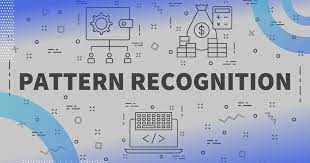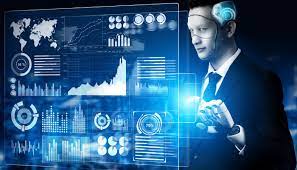Can New AI Development Platforms Supercharge Your Projects?
Table of Contents
Flat 30% Off On WordPress Hosting
Can New AI Development Platforms Supercharge Your Projects?
From revolutionizing industries to transforming our daily lives, artificial intelligence (AI) continues to make waves. But behind every innovative AI application lies a robust development platform. In this article, we delve into the realm of AI development platforms, exploring their significance, emerging trends, key features, and the future landscape. Whether you’re a seasoned AI enthusiast or just dipping your toes into the waters of machine learning, understanding these platforms can be the game-changer you’ve been searching for.
1. Introduction
1.1 Definition of AI Development Platforms
Before we dive deeper, let’s clarify what we mean by AI development platforms. These are comprehensive software frameworks or environments that provide the necessary tools, libraries, and resources for building, training, and deploying AI models. Think of them as the powerhouse behind AI innovation, offering developers a structured ecosystem to unleash their creativity.
2. Importance of AI Development Platforms
AI development platforms play a pivotal role in driving the adoption and advancement of artificial intelligence. Here’s why they matter:
2.1 Accelerating AI Projects
In today’s fast-paced world, speed is of the essence. AI development platforms empower developers to expedite the entire AI lifecycle—from data preprocessing to model deployment. By automating repetitive tasks and offering pre-built modules, these platforms enable rapid prototyping and iteration, reducing time-to-market for AI solutions.
2.2 Streamlining Development Processes
Gone are the days of wrestling with complex algorithms and infrastructure setup. Modern AI development platforms come equipped with user-friendly interfaces and intuitive workflows, abstracting away technical complexities. This democratization of AI development opens doors for a broader pool of talent, fostering innovation across diverse domains.
2.3 Democratizing AI
AI shouldn’t be the exclusive domain of tech giants and research labs. With AI development platforms, democratization becomes a reality. These platforms lower the barriers to entry by offering free or affordable access to cutting-edge tools and resources. As a result, startups, SMEs, and even individual developers can harness the power of AI to drive their ventures forward.
3. Emerging Trends in AI Development Platforms
The landscape of AI development is ever-evolving, with new trends reshaping the industry. Here are some noteworthy developments:
3.1 Integration of Natural Language Processing (NLP)
As language becomes a fundamental interface for human-machine interaction, AI development platforms are doubling down on NLP capabilities. From sentiment analysis to language translation, integrating NLP tools and libraries empowers developers to create more intelligent and conversational AI applications.
3.2 Enhanced Automation Capabilities
Automation is the name of the game in AI development. Modern platforms are embracing automation at every stage of the workflow, from data preprocessing to model tuning. By leveraging techniques like AutoML (Automated Machine Learning), developers can streamline the development process and achieve optimal results with minimal manual intervention.
3.3 Focus on Explainability and Ethical AI
With great power comes great responsibility. AI development platforms are increasingly focusing on transparency, interpretability, and ethical considerations. Explainable AI techniques, such as LIME (Local Interpretable Model-agnostic Explanations), are gaining traction, allowing developers to understand and trust the decisions made by AI models.
4. Key Features of Leading AI Development Platforms
While the market is flooded with AI development platforms, some stand out from the crowd. Let’s take a closer look at a few frontrunners:
4.1 TensorFlow
Developed by Google, TensorFlow is a powerhouse in the world of AI. Known for its flexibility and scalability, TensorFlow offers a comprehensive ecosystem for building and deploying machine learning models across a range of devices and platforms.
4.2 PyTorch
PyTorch, backed by Facebook, has gained widespread popularity for its dynamic computation graph and intuitive programming interface. With its eager execution mode and seamless integration with Python, PyTorch is the go-to choice for researchers and developers alike.
4.3 Microsoft Azure AI
For businesses looking for a robust AI solution, Microsoft Azure AI provides a suite of tools and services tailored to their needs. From cognitive services for vision and language to custom machine learning models, Azure AI offers a scalable and reliable platform for AI development and deployment.
5. Comparison of Popular AI Development Platforms
With so many options available, choosing the right AI development platform can be daunting. Let’s compare them across various dimensions:
5.1 Flexibility and Ease of Use
While TensorFlow offers unparalleled flexibility and scalability, PyTorch shines in terms of simplicity and ease of use, especially for deep learning research. Microsoft Azure AI strikes a balance between the two, providing a user-friendly interface without compromising on functionality.
5.2 Scalability and Performance
When it comes to scalability, TensorFlow’s distributed computing capabilities set it apart from the competition. PyTorch, on the other hand, excels in dynamic graph computation, making it ideal for rapid prototyping and experimentation. Microsoft Azure AI provides scalable solutions tailored to enterprise needs, with robust performance and reliability.
5.3 Community Support and Resources
Both TensorFlow and PyTorch boast vibrant communities and extensive documentation, making it easy for developers to find help and resources. Microsoft Azure AI offers comprehensive support and integration with other Azure services, providing a seamless experience for businesses seeking end-to-end AI solutions.
6. Choosing the Right AI Development Platform
With a plethora of options available, how do you select the perfect AI development platform for your project? Here are some factors to consider:
6.1 Understanding Project Requirements
Start by clearly defining your project goals, requirements, and constraints. Are you building a prototype for research purposes, or do you need a scalable solution for production deployment? Understanding your needs will help narrow down the choices.
6.2 Evaluating Cost and Pricing Models
While some platforms offer free tiers or open-source alternatives, others may require a significant investment. Consider your budget and evaluate the pricing models of different platforms, taking into account factors like usage fees, support options, and additional services.
6.3 Considering Integration and Compatibility
Integration with existing systems and tools is crucial for seamless workflow integration. Choose a platform that integrates well with your preferred programming languages, frameworks, and infrastructure, ensuring compatibility and interoperability.
7. Case Studies: Successful Applications of AI Development Platforms
The proof is in the pudding. Let’s explore how AI development platforms have fueled innovation across various industries:
7.1 Healthcare
From medical imaging to drug discovery, AI development platforms have revolutionized healthcare. Platforms like TensorFlow and PyTorch enable researchers to develop advanced diagnostic tools and personalized treatment plans, improving patient outcomes and reducing healthcare costs.
7.2 Finance
In the finance industry, AI development platforms are powering predictive analytics, fraud detection, and algorithmic trading. By harnessing the power of machine learning, financial institutions can make data-driven decisions, mitigate risks, and optimize portfolio management strategies.
7.3 E-commerce
AI is reshaping the e-commerce landscape, from personalized recommendations to supply chain optimization. With AI development platforms, e-commerce companies can analyze customer behavior, optimize pricing strategies, and automate inventory management, delivering a seamless shopping experience.
8. Future Outlook of AI Development Platforms
As AI continues to evolve, so do the platforms that drive its development. Here’s what the future holds:
8.1 Advancements in AI Algorithms
With ongoing research and innovation, we can expect to see breakthroughs in AI algorithms, enabling more complex and sophisticated models. From deep reinforcement learning to generative adversarial networks, the possibilities are endless.
8.2 Expansion of AI Applications
AI is no longer confined to niche domains. We’ll witness the proliferation of AI applications across diverse industries, from agriculture to entertainment. Whether it’s optimizing crop yields or creating immersive virtual worlds, AI development platforms will be at the forefront of innovation.
8.3 Addressing Ethical and Regulatory Concerns
As AI becomes increasingly ubiquitous, ethical and regulatory considerations will take center stage. AI development platforms will play a crucial role in promoting transparency, fairness, and accountability in AI systems, ensuring they serve the greater good without perpetuating biases or harm.
9. Conclusion
In conclusion, AI development platforms are the bedrock of AI innovation, empowering developers to unleash the full potential of artificial intelligence. Whether you’re a seasoned data scientist or a novice enthusiast, exploring these platforms can unlock new possibilities and drive meaningful impact across industries. As we navigate the ever-changing landscape of AI, one thing is certain: the journey is just beginning.
FAQs (Frequently Asked Questions)
1. What are AI development platforms? AI development platforms are comprehensive software frameworks or environments that provide tools, libraries, and resources for building, training, and deploying AI models.
2. How do AI development platforms accelerate AI projects? AI development platforms automate repetitive tasks, offer pre-built modules, and provide user-friendly interfaces, speeding up the entire AI lifecycle.
3. What factors should I consider when choosing an AI development platform? Consider your project requirements, budget, and compatibility with existing systems when selecting an AI development platform.
4. How are AI development platforms applied in different industries? AI development platforms are applied in various industries, including healthcare, finance, and e-commerce, to drive innovation and optimize processes.
5. What is the future outlook for AI development platforms? The future of AI development platforms lies in advancements in AI algorithms, expansion of AI applications across industries, and addressing ethical and regulatory concerns.


